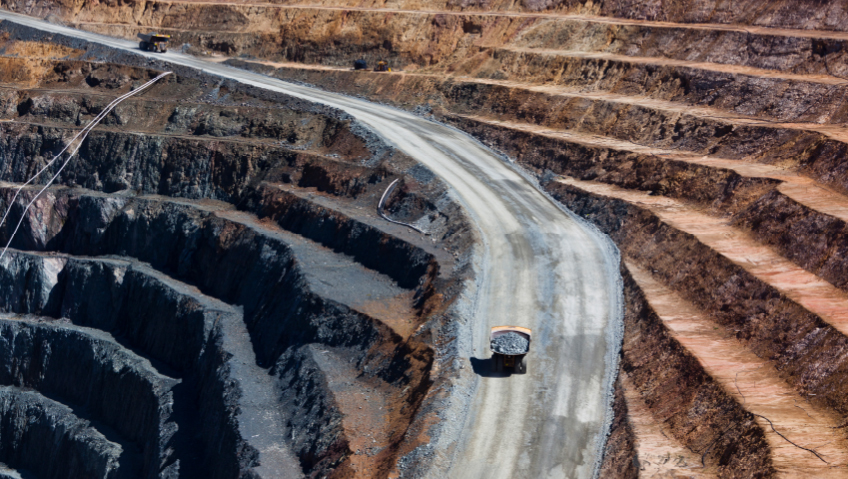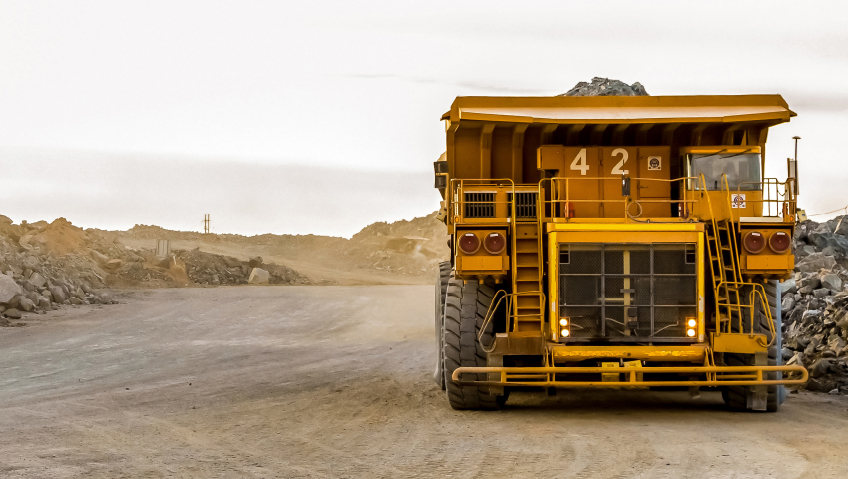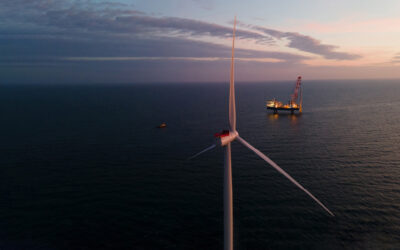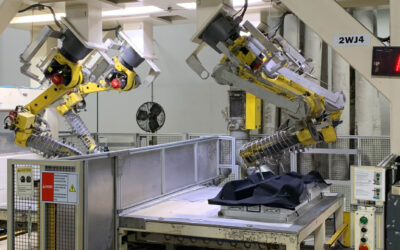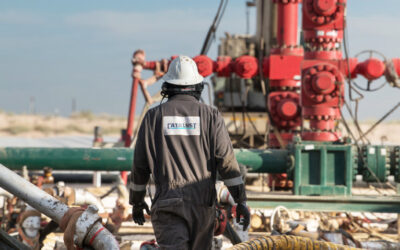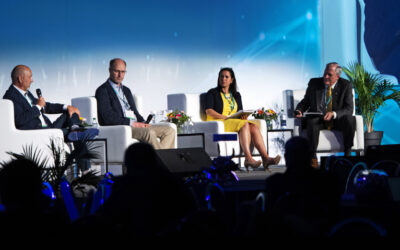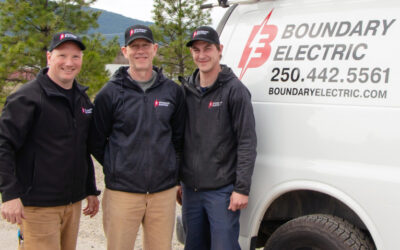Canadian engineering and consulting firm BESTECH has served the mining industry since 1995 and has become known for its work on sustainability in the sector. The company is supported by its sister organization, FROSKR, founded in 2020 to aid the advancement of environmental protection and sustainability in mining operations.
Since Resource in Focus Magazine’s feature on BESTECH/FROSKR in 2022, the companies have experienced strong growth and continue to diversify their offerings. BESTECH is currently focusing on an advanced geotechnical model and has taken on several major studies into the efficacy of battery electric vehicles (BEVs). With the support of other disciplines within the company—automation, power, electrical, structural, mechanical, and environmental—it will soon be expanding its international engineering work.
FROSKR President Kati McCartney affirms that the sister company has similarly expanded its client base and capacity in the last year, describing it as a mature startup that is scaling up to support BESTECH. The landscape has changed for the companies in the past twelve months as both look to engage in great projects across multiple industries. BESTECH’s Manager of Mine Engineering Services Lee Weitzel notes that BESTECH is a very well-rounded company with a senior workforce, possessing a depth of knowledge that surpasses many of its competitors.
Weitzel defines mining as a foundational industry that supports society, from cars to housing, products, and more. “If mining stopped tomorrow,” he says, “our civilization would disappear.”
Weitzel and McCartney agree that the public still does not quite understand how integral mining is to everyday life, and it involves far more than just extraction. As McCartney explains, “It’s everything that happens to get the metal out of the ground… and the full supply chain.”
Weitzel feels that a hidden value of mining has to do with how it can combat climate change, an increasing global stressor. The mining industry has a significant role to play through its worldwide extraction and modification of minerals such as cobalt, graphite, and nickel used to make the lithium-ion batteries that are required for battery-operated electric vehicles. Other aspects of this hidden value are the various companies that support mining operations, from technologies to researchers, regulators, human resources, and more, as well as the other industries that help mining function.
Weitzel expands on mining’s role in combating climate change by highlighting the role of BEVs in the mining workspace. These vehicles are part of a step change in the industry, as the challenge has always been to ventilate underground work areas for miners due to unhealthy diesel emissions. Now, by lessening the need for ventilation and using BEVs in these precarious locations, a company can lower electrical costs and add health benefits for its workers while also reducing greenhouse gas emissions.
Mining is heavily involved in developing BEVs, especially as the global conversation around emissions has intensified with initiatives like the 2022 United Nations Climate Change Conference, COP27, held in November 2022. Combatting climate change via such moves as getting global warming to less than 2.5 degrees will not happen without emissions reduction, and every heavy industry must change to meet this goal.
However, the move toward battery power, solar panels, and wind turbines will not be able to happen without mining itself. McCartney also points out that local and global demand for minerals like lithium and nickel has increased by as much as forty percent in the past seven years, doubling the typical demand. This has led to something of a circular conversation, as McCartney sees it. “We need mining to slow climate change, but it can’t be done in the same ways it used to be done.”
Although mining is not a primary emitter—contributing to only about seven percent of global emissions—it is still one of the most energy-intensive industries, so special consideration must be made to how this energy is used for extraction. Using BEVs in mines will eliminate diesel equipment, a contributor to greenhouse gas emissions. Whether from a health or environmental or workflow standpoint, the overall impact of switching to BEVs makes sense in practically every way.
McCartney also explains that many mining companies today have expectations from both stakeholders and investors to decarbonize, and BEVs are a significant way to accomplish this. At BESTECH, Weitzel’s team shows clients the path to decarbonization that investors expect, so mining companies can make the change in lowering emissions.
Decarbonization efforts in the industry have jumped twofold in the past year alone, and some investors are even divesting from companies that are unwilling to hold these conversations. Investor confidence is critical toward financing battery material projects both in Canada and worldwide, Weitzel stresses. However, the mining industry is still having difficulty meeting greener efforts, resulting in investors turning away. Furthermore, climate change itself is affecting mining operations, especially in remote locations, as environmental changes like ice melting or permafrost are affecting mining infrastructure.
A further challenge for the industry is that workers are retiring and not being replaced in their positions, and mining is stressed by the lack of knowledgeable and experienced people. McCartney sees that much work from both the Ontario Mining Association and the Mining Association of Canada is looking to fill gaps in the industry in the next five to ten years due to spikes in demand. However, there are other gaps in non-traditional skill sets like IT and business that also need to be filled to secure funding for greener mining practices.
Amidst these struggles, mining has seen some crucial victories as well. In the past, huge changes to the sector were driven either by regulators or demand for supply; now, this power has shifted to investors and has emboldened companies to put strong environmental, social, and corporate governance (ESG) portfolios upfront to charge a premium at a time of high demand.
As an example of a big win for mining, an ongoing project by global natural resource company Glencore that has been ongoing since the 1990s has recently found new life thanks to BEV technology. Now, the project can continue and be viable in areas dangerous to workers, and less cooling and power are needed to do the project at significant depth. This has resulted in hundreds of jobs in the Sudbury area.
Critical mining strategies from the Canadian government continue to drive economic prosperity, enabling the country to assume a position of global leadership. A national push to extract minerals and metals closer to manufacturer locations would also not only keep technology more local but would reduce the reliance on sourcing from poorer global socioeconomic regions or areas with unfavourable regulations.
Looking deeper into 2023, the future looks bright for mining, especially with the acceptance of BEVs. “As BESTECH introduces people to BEVs, it opens up a whole new market of battery-operated mechanics and a whole new opportunity for a generation to try a new trade,” Weitzel affirms, adding that BESTECH will look to continue diversification and take on more international opportunities and projects. Sister company FROSKR will be realigning with partners in mining that are supplying the green economy and strong ESG portfolios through both renewable energy and projects leading away from fossil fuels.
McCartney is also proud that BESTECH and FROSKR are currently in a good position to have more meaningful economic development conversations with Indigenous partners. Changes across the next five years will look at how mining will engage in meaningful and prosperous ways to operate on shared land and learn from past mistakes. Through it all, BESTECH/ FROSKR will look to support emissions reduction and grow capacity to help mining clients of all sizes to feed supply for demand in the market.
As McCartney emphasizes, “We don’t start the conversation about green economy and the transition away from fossil fuels without mining.”

